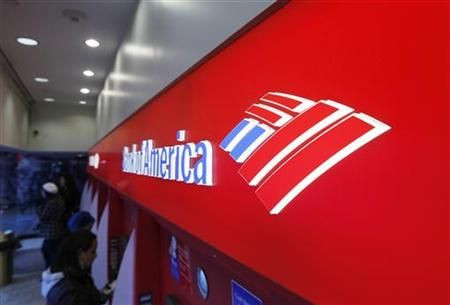Bank of America Debit Card Fee Inspires Anti-bank Rhetoric
ANALYSIS

When Bank of America announced last week that it would begin charging a $5 monthly fee to customers using their debit cards at retail locations, it understandably caused a fair amount of complaining from consumers, a fact that was noted across the board by various media sources Friday.
Less noted, and perhaps more remarkable, is the fact that this one action seems to have focused the attention of politicians and activists towards a concrete foe, ratcheting up the anti-bank rhetoric to levels not seen in at least a year.
Part of the issue might have been the delivery. Anne Pace, the Bank of America spokeswoman whose unenviable job it was to convey the development to the media, broke the news exclusively to Bloomberg News, noting that “the economics of offering a debit card have changed with recent regulations, and we’ve decided to introduce a monthly fee for customers who use their debit cards for purchases.”
Besides the immediate effect of slightly ticking off every single banking reporter in the country who got scooped on the biggest story of the week, this PR approach reeked of disdain for the government, citing “recent regulations” as the only reason why the debit card fee had to be implemented. Unlike, say, the airline companies, who have been careful to couch the introduction of new fees for travelers with oblique references to market conditions or new business realities, the statement is a complete abdication of responsibility.
Forget the fact that Bank of America is so desperate for revenue it is willing to risk anger from its customers to stanch the mountain of red from its 2008 acquisitions. Forget the fact the bank stands as the biggest monument to former Treasury Secretary Henry Paulson’s crisis strategy, when taxpayers were told institutions were “too big to fail,” and therefore needed state-sponsored guarantees, became “too biggerer to fail.” Forget the fact the firm’s stock price is in the doldrums, something even a very recent (and very expensive) endorsement from Warren Buffett has done nothing to turn around. Forget the fact that many of the bank’s competitors, facing the same “recent regulations,” have not seen a need to introduce a flat fee. It’s the government’s fault, and only the government’s fault.
The reaction was immediate. U.S. Senator Dick Durbin (D-Ill.), whose amendment to the Dodd-Frank financial reform law, which caps the amount banks can charge retailers per debit card transaction, is the source of the obliquely cited “regulations, let them have it.
It seems that old habits die hard for Bank of America. After years of raking in excess profits off an unfair and anti-competitive interchange system, Bank of America is trying to find new ways to pad their profits by sticking it to its customers,” the senator said in a statement, spiking the political football as hard as anyone has since at least December 2009, when President Obama famously blasted “fat cat bankers” for some of the the country’s economic ills.
Competitors gloated all over the media. The Bank of America Web site crashed, presumably flooded with customers trying to get the information about the new fees straight from the horse’s mouth. (They would be sorely disappointed. The bank’s press release page still does not have a statement addressing the issue.) Protesters participating in the “Occupy Wall Street” movement of vague ideological definition invaded the lobby of one the bank’s Boston headquarters, seemingly the only action demonstrators affiliated to the effort have taken against a specific Wall Street firm.
Perhaps Bank of America did not properly estimate the reaction it would get, or figured it had bigger issues to deal with. Perhaps it just gambled it would only be the first of a string of major banks announcing the same changes, and that competitors would have its back. Perhaps it just assumed politicians would maintain the détente on heated rhetoric against financial institutions that seems to have prevailed over the past year.
Or maybe, just maybe, it calculated that in the current environment, in which everyone is finding ways to circumvent upcoming regulation or pass on the costs, and where “bank” seems to have become a four-letter word anyway, it would be unlikely for any single name to become a lightning rod of populist anger. In which case I have two words for the people at Bank of America: Lehman Brothers.
© Copyright IBTimes 2024. All rights reserved.





















